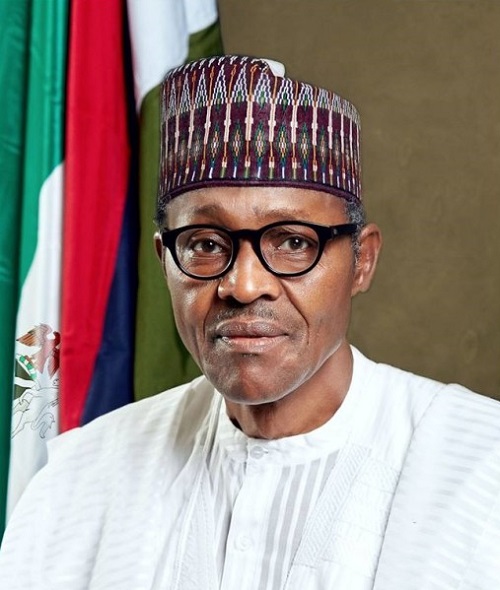
Ahead of Democracy Day on May 29 this year, the presidency has published a document reeling out President Muhammadu Buhari’s achievements during his three years in power.
Buhari was elected under the platform of All Progressives Congress (APC), defeating then incumbent President Goodluck Jonathan of the Peoples Democratic Party (PDP).
He was sworn into office on May 29, 2015.
In his inaugural speech, the president stated that his administration will focus on the economy, fight against corruption, and provision of security.
The document reads:
Economy
The presidency says the Nigerian economy is back and is on the path of growth after the recession of 2016-17.
It said the Buhari administration’s priority sectors of agriculture and solid minerals maintained consistent growth throughout the recession.
It said inflation has fallen for the fifteenth consecutive month while the nation’s external reserves are at their highest levels in five years, currently double the size of October 2016.
“The new FX Window introduced by the CBN in April 2017 now sees an average of $1 billion in weekly turnover, and has attracted about 45 billion dollars in inflows in its first year, signalling rising investor confidence in Nigeria
“Nigeria’s Stock Market ended 2017 as one of the best-performing in the world, with returns of about 40 percent,” it said.
It also said five million new taxpayers were added to the tax base since 2016, as part of efforts to diversify government revenue.
Also, tax revenue increased to N1.17 trillion in the first quarter 2018, a 51 per cent increase on the first quarter 2017 figure.
The government said N 12.7 trillion was spent on infrastructure in the 2016 and 2017 budgets, “an unprecedented allocation in Nigeria’s recent history.”
Other economic achievements, stated by the presidency, include the revitalisation of 14 moribund blending plants under the Presidential Fertilizer Initiative, and the tripling of revenue to the Federation Account from solid minerals.
It said the revenue tripled from N700 million in 2015 to N2 billion in 2016, and again rose to N3.5 billion in 2017.
The presidency also said its Economic Recovery and Growth Plan (ERGP), which was launched by Mr Buhari in April 2017, has stabilised the macroeconomic environment; achieved agricultural and food security and has also ensured energy efficiency especially in power and petroleum products.
It also said the ERGP has improved transportation infrastructure and industrialisation primarily through the Small and Medium Enterprises (SMEs).
“To fast-track the implementation of the ERGP, the federal government launched the ERGP Focus Labs, as a targeted 6-week intervention (March to April 2018) to unlock medium-scale and large-scale investment projects held back by bureaucratic bottlenecks.
“The just-concluded Phase 1 of the ERGP Focus Labs identified projects worth about $10 billion for fast-tracking, and the bottlenecks holding them back are now being resolved,” the government said.
In the area of monetary, fiscal and trade policies, the document stated that the APC administration created a new Foreign Exchange window for investors and exporters in April 2017 which has helped stabilise the market and increase appetite for Nigerian stocks by foreign portfolio investors.
“The new Window has attracted inflows of more than $45 billion in its first year of operation,” it said.
In the area of debt management, the document reveals that government adopted a strategy that seeks to achieve its goal by replacing Treasury Bills borrowing with lower-cost, longer-term external financing (via Eurobonds and Concessional Loans from China)
“The Buhari Administration inherited N12.1 trillion in debt, with N5.4 trillion annual servicing cost, and had reduced the debt service on this inherited debt to N3.9 trillion by 2016,” it said.
Under the Bond Issuance programme, the government said $7.3 billion was issued in Eurobond in 2017/18, to fund the 2017 Budget as well as to refinance maturing treasury bills and lower the cost of borrowing for the government.
“This debt refinancing strategy is paying off as treasury bill rates have dropped from 16-18% to 10-12% over the last year.
“The oversubscription of our recent Eurobond (the first issuance in 2017 saw orders in excess of US$7.8 billion compared to a pre-issuance target of US$1bn) demonstrates strong market appetite for Nigeria, and shows confidence by the international investment community in Nigeria’s economic reform agenda,” the government said.
Other debt related issues raised in the document include Nigeria’s first Sovereign Sukuk Bond which raised N100 billion used to fund 25 major road projects across the country.
There was also Nigeria’s first ever Diaspora-targeted Eurobond that raised $300 million used to fund part of the 2017 Budget and Africa’s first Sovereign Green Bond Programme that raised N10.69 billion used to fund infrastructure projects that tackle climate change.







